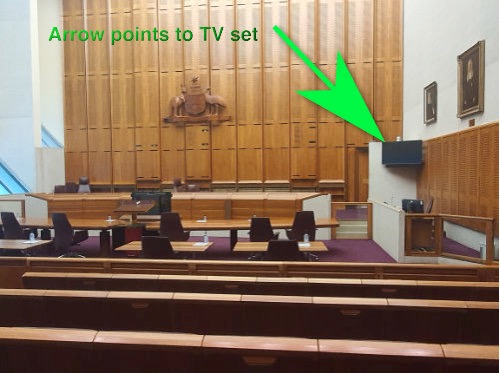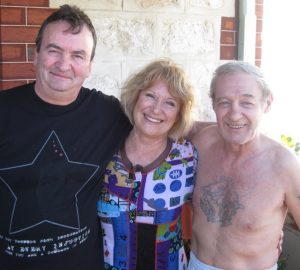NACC: CLA explains how integrity and rights go together
CLA’s submission to the National Anti-Corruption Commission parliamentary inquiry placed the NACC in context – along with a much-needed, federal Human Rights Act to follow – as delivering a better, fairer and more equal ethical infrastructure for Australia. When CLA appeared before the NACC inquiry committee, it was unfortunately more intent on parsing clauses from a legal perspective than discussing the best national philosophy for Australia. (Note: the committee asked for submissions to be kept as short as possible).


 The size of justice as portrayed on the TV set in Court 2, High Court of Australia. The portrait of the judge, at right, is bigger, not to mention the coat of arms.[/caption]
The size of justice as portrayed on the TV set in Court 2, High Court of Australia. The portrait of the judge, at right, is bigger, not to mention the coat of arms.[/caption]
 Australia needs a Criminal Cases Review Commission system. Proven over 25 years in Britain, a CCRC can correct wrongful convictions like those of the Guildford 4 and the Birmingham 6 (Photo: two of those victims, with Australian wrongful conviction guru Estelle Blackburn). With an Australian CCRC system, the cases of Sue Neill-Fraser and Derek Bromley – now before the High Court – would have evaluated for their possible erroneous forensics earlier than 13 and 37 years ago, respectively.
Australia needs a Criminal Cases Review Commission system. Proven over 25 years in Britain, a CCRC can correct wrongful convictions like those of the Guildford 4 and the Birmingham 6 (Photo: two of those victims, with Australian wrongful conviction guru Estelle Blackburn). With an Australian CCRC system, the cases of Sue Neill-Fraser and Derek Bromley – now before the High Court – would have evaluated for their possible erroneous forensics earlier than 13 and 37 years ago, respectively.